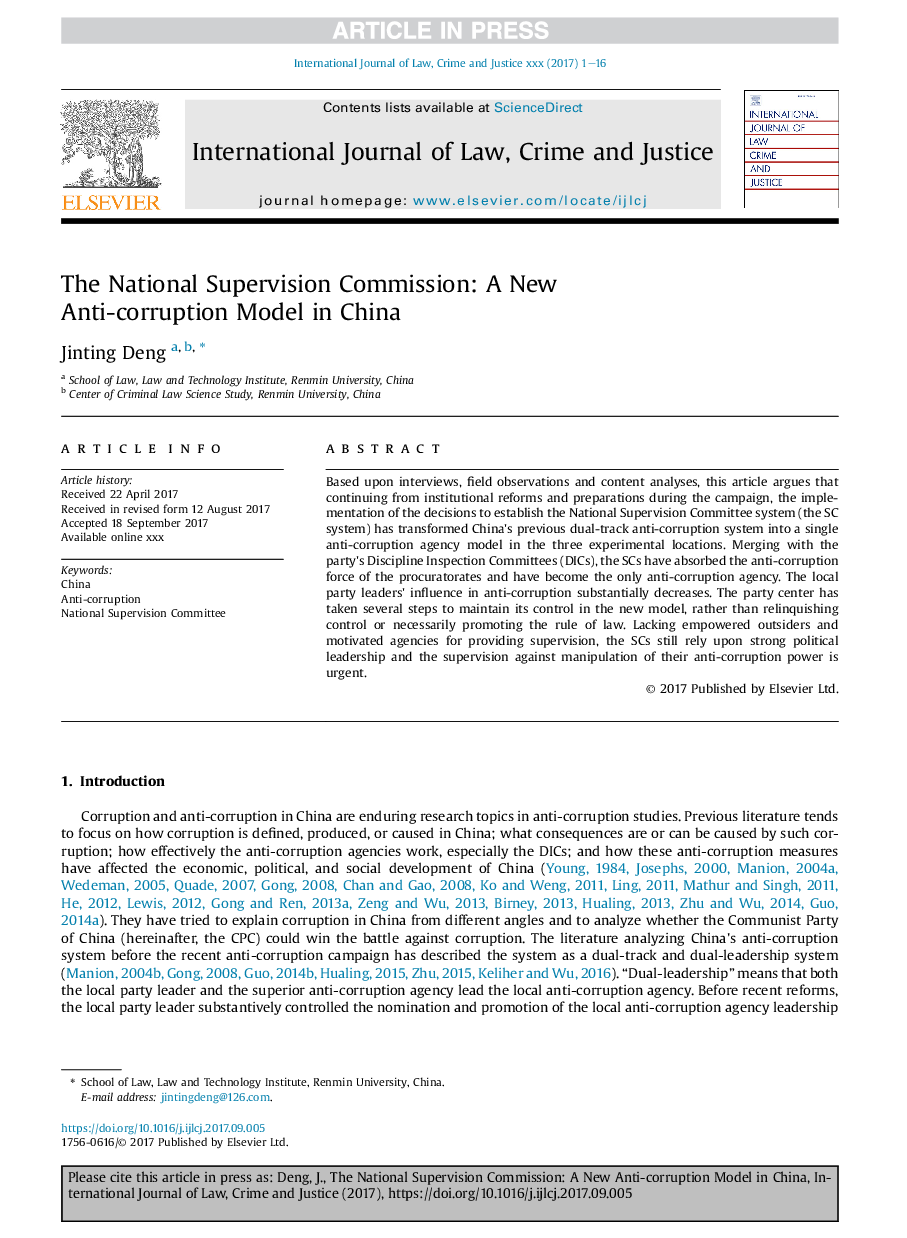| Article ID | Journal | Published Year | Pages | File Type |
|---|---|---|---|---|
| 7532024 | International Journal of Law, Crime and Justice | 2018 | 16 Pages |
Abstract
Based upon interviews, field observations and content analyses, this article argues that continuing from institutional reforms and preparations during the campaign, the implementation of the decisions to establish the National Supervision Committee system (the SC system) has transformed China's previous dual-track anti-corruption system into a single anti-corruption agency model in the three experimental locations. Merging with the party's Discipline Inspection Committees (DICs), the SCs have absorbed the anti-corruption force of the procuratorates and have become the only anti-corruption agency. The local party leaders' influence in anti-corruption substantially decreases. The party center has taken several steps to maintain its control in the new model, rather than relinquishing control or necessarily promoting the rule of law. Lacking empowered outsiders and motivated agencies for providing supervision, the SCs still rely upon strong political leadership and the supervision against manipulation of their anti-corruption power is urgent.
Keywords
Related Topics
Social Sciences and Humanities
Social Sciences
Law
Authors
Jinting Deng,
